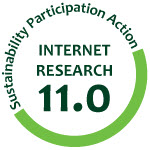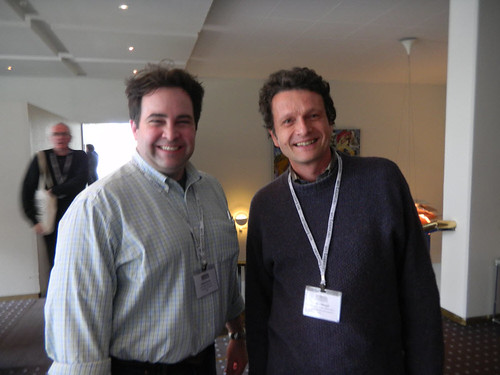I hope to post the idea for my next mini-research project tomorrow. I just received some internal cohort-mate feedback, and realize I need to process and develop the idea a bit more before I put it here.
Category: Lancaster PhD
Preparing for ICQI2010
Keefer, Jeffrey M., Lancaster University
Learning Goals and Personal Learning in Practitioner Autoethnographic Inquiry: A Case Study
Autoethnography is an increasingly used method of inquiry in the social sciences that focuses upon an experience, or case, in the life of the researcher, who then studies this with the hope of presenting it with vivid and rich descriptive details. It is often intended that the reader be able to share in the experience, so the research is intentionally related to common cultural perspectives. There is limited research around why autoethnographers engage in this method, especially in the context of trying to better understand their goals and intentions for their own work, as well as what is hoped for within the audience. This exploratory case study research will explore the researcher’s learning goals for his or her readers, as well as how the researcher’s own learning develops through the process of conducting the autoethnographic research.
Keefer, Jeffrey M., Lancaster University
The Design and Initial Development of an eLearning Course to Organize and Frame a Qualitative Research Design: The Learning Qualitative Project
There is increasing attention to the challenges faced by faculty who teach qualitative research method courses. Whether lecturers do not have sufficient background to teach in this area, students are not ready to take these courses or their expectations differ from what is taught, logistical institutional factors inhibit teaching and learning, or challenges in the theory-practice relationship pose struggles to coursework, the struggles with teaching qualitative methods seem nearly endless (Hurworth, 2008). With so much need, it was decided to create a freely available eLearning course to assist faculty and students alike. A qualitative research design eLearning course was developed to address some of the basic elements of a research design, and the first version of this is being tested with feedback being used to improve the course’s usefulness.
Hope to see some colleagues, old and new, later this week!
Paper Accepted — Internet Research 11.0
 I am thrilled to share the news that the paper I submitted for the Internet Research 11.0 #ir11 conference, sponsored by the Association of Internet Researchers #AoIR, was just accepted! The paper is entitled Public Transformations: Adult Learners Who Use Social Media to Express and Understand Their Identities as Developing Researchers. I will share the abstract here once I revise it based on reviewer feedback.
I am thrilled to share the news that the paper I submitted for the Internet Research 11.0 #ir11 conference, sponsored by the Association of Internet Researchers #AoIR, was just accepted! The paper is entitled Public Transformations: Adult Learners Who Use Social Media to Express and Understand Their Identities as Developing Researchers. I will share the abstract here once I revise it based on reviewer feedback.
I have heard a lot of wonderful things about this conference, and am looking forward to (hopefully) attend this conference in Gothenburg, Sweden, in October.
Networked Learning Conference Take-Aways
- There is a lot of research still to be done in the area of (virtual / digital) identity development and how that relates to communties of practice, which is something I will continue to explore as I approach my doctoral research proposal. The paper I presented, Autoethnographer Communities of Practice, is here until they make it available on the website, and I am planning to take some of the comments I received, as well as what I learned, and continue to develop these ideas.
- The area of Networked Learning is still under development, which is clear from Grainne Conole’s work in the Hot Seat before the event (her white paper is here), as well as her ongoing work and comments through the conference. She quoted Goodyear, Banks, Hodgson & McConnell (2004) for a working definition of Networked Learning — learning in which ICT is used to promote connections: between one learner and other learners; between learners and tutors; between a learning community and its learning resources. As this is somewhat different than a traditional educational technology or learning technology program / usage (at least in the US), and as it is the focus of my eTEL program at Lancaster University, I see a tremendous amount of research opportunities here. These connections flow naturally with Wenger‘s work in Communities of Practice, and with my interests in making sense of our experiences, I see a lot of work and exploration ahead.
- Part of this networked learning involves working with the network of researchers and learners, and maintaining some of the wonderful connections I have made is the next tangible step I plan to do.
What a great conference. Interesting that I have not found anything like this in the US; glad I realized at this point in my studies and research that there is an entire world or scholarship on practice out there, and as networks have no borders, neither should I.
Pictures from Networked Learning 2010 NLC2010
I uploaded all the pictures I took while traveling through Munich, Copenhagen, and Aalborg for the Networked Learning Conference 2010 NLC2010. Each set of pictures is in its own Flickr set, and you can see them by clicking the city names above.
The tag nlc2010 can be searched on Flickr and Twitter as well by clicking on the names.
